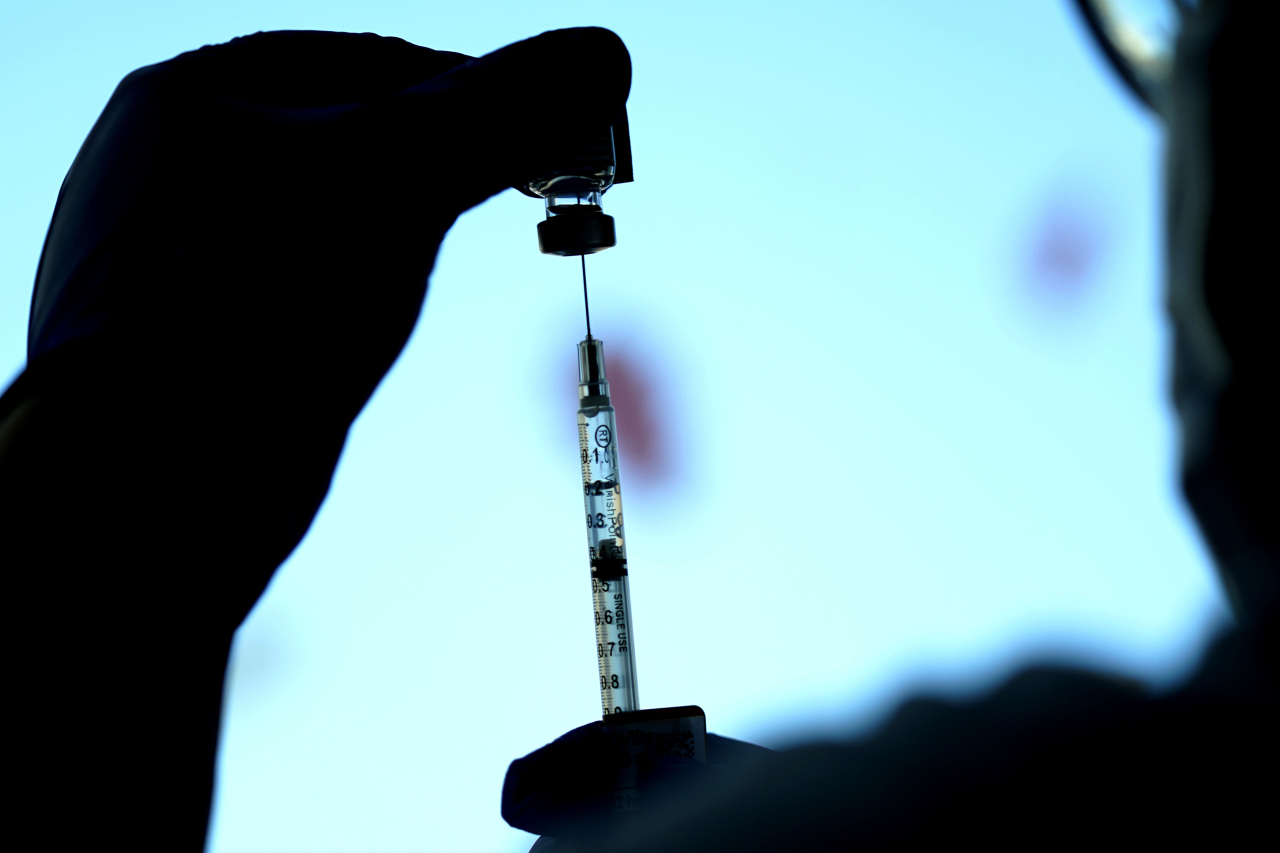S. Korean parents lukewarm to government’s vaccination program for children
By Shim Woo-hyunPublished : March 15, 2022 - 16:13

Parents in South Korea are wary of a government plan to vaccinate children aged 5 to 11 against COVID-19 starting later this month, with many worried about the potential side effects.
The government on Monday announced that it will begin inoculating children in that age group on March 31 at around 1,200 designated medical facilities.
Pfizer’s COVID-19 vaccine Comirnaty, which was approved by the Ministry of Food and Drug Safety for child vaccination last month, is expected to be used.
The program is not mandatory, and parents here did not seem very interested in vaccinating their children, mainly due to the possible short-term side effects, as well as unknown long-term adverse effects.
“I don’t think I will have my child vaccinated ever, due to the possible side effects,” said a 35-year-old father of a 5-year-old girl, who gave his surname as Kwak.
A 48-year-old mother of two, surnamed Jang, also said she and her husband decided not to have their children -- aged 12 and 9 -- vaccinated due to worries about side effects and overall vaccine safety.
Another mother, who requested anonymity, said many parents had told her that they are strongly against having their children inoculated with COVID-19 vaccines because they think there is not enough clinical data to back their use up.
The rate of severe cases and hospitalizations among children infections is low, compared to that of adults.
According to the country’s health authorities, some 700,000 children have been infected with COVID-19 to date. Of those, four have died and 20 have been in critical condition.
The country’s health authorities recommended Monday that children with underlying health conditions receive a COVID-19 vaccine. But it stopped short of recommending shots to other children of the same age, stressing only access to vaccines and related information. It will begin taking reservations from March 24.
Some parents opposing the shots also argue that the widespread omicron variant has already rendered the immunity gained from the vaccines obsolete.
One woman, who preferred to remain anonymous, asked, “What is the point of getting vaccinated if another variant of the coronavirus appears by the time my child receives the second dose?”
Her 8-year-old child was recently infected with the omicron variant.
The country’s health authorities admitted that the vaccine was not 100 percent effective at protecting younger children from getting infected with the coronavirus.
They, however, stressed that the vaccine demonstrated 90.4 percent efficacy in preventing COVID-19 symptoms in its phase 3 clinical trial.
To state their case for the vaccines, the government also quoted data from the US Centers for Disease Control and Prevention regarding 8.7 million doses of the Pfizer vaccine administered to children aged between 5 and 11 between Nov. 3 and Dec. 19, 2021. The CDC said it received 4,249 reports of adverse events, and only 100 of them were serious.
The US CDC data also showed that among children aged 5-11, the estimated vaccine efficacy was 74 percent for two vaccine doses received 14-67 days earlier against COVID-19-associated hospitalization.
Despite the government’s reassurances, the vaccination program for children may not gain traction as many parents have already expressed hesitancy about the vaccines since last year.
South Korea, previously, had to scrap a plan to require vaccine passes for children aged between 12 and 18 after the government faced a backlash from parents and a court ruled against the plan.
The hesitancy toward COVID-19 vaccines has continued, and was also reflected in the low vaccination rate among 12-year-olds, an age group that the country began inoculating this year.
According to government data, only 7.9 percent of 12-year-olds have received their first dose, and just 3.9 percent have had a second dose.








![[Graphic News] More Koreans say they plan long-distance trips this year](http://res.heraldm.com/phpwas/restmb_idxmake.php?idx=644&simg=/content/image/2024/04/17/20240417050828_0.gif&u=)
![[KH Explains] Hyundai's full hybrid edge to pay off amid slow transition to pure EVs](http://res.heraldm.com/phpwas/restmb_idxmake.php?idx=644&simg=/content/image/2024/04/18/20240418050645_0.jpg&u=20240419100350)






![[From the Scene] Monks, Buddhists hail return of remains of Buddhas](http://res.heraldm.com/phpwas/restmb_idxmake.php?idx=652&simg=/content/image/2024/04/19/20240419050617_0.jpg&u=20240419175937)

![[KH Explains] Hyundai's full hybrid edge to pay off amid slow transition to pure EVs](http://res.heraldm.com/phpwas/restmb_idxmake.php?idx=652&simg=/content/image/2024/04/18/20240418050645_0.jpg&u=20240419100350)

![[Today’s K-pop] Illit drops debut single remix](http://res.heraldm.com/phpwas/restmb_idxmake.php?idx=642&simg=/content/image/2024/04/19/20240419050612_0.jpg&u=)